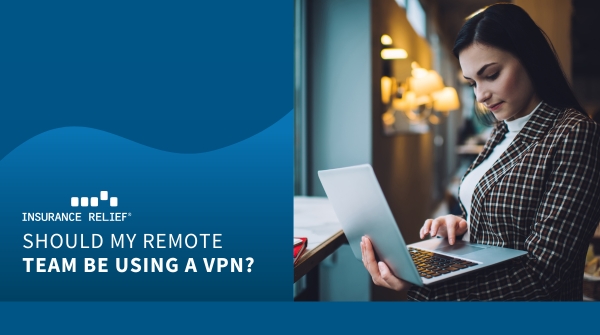Should My Remote Team Be Using a VPN?

A VPN, or Virtual Private Network, is a technology that establishes a secure and encrypted connection between a user’s device and a remote server. It provides a private and protected pathway for internet traffic, ensuring that data transmitted between the user and the server remains secure and confidential.
A VPN works by routing the user’s internet connection through the VPN server, encrypting the data during the transmission. This encryption adds a layer of security, preventing unauthorized access and ensuring that sensitive information, such as passwords, financial transactions, or business data, is safeguarded from potential threats or eavesdropping.
Whether a remote work team should use a VPN depends on several factors:
Enhanced Security
If the remote work team handles sensitive or confidential data, such as client information, financial records, or proprietary company data, using a VPN is highly recommended. It provides an additional layer of security, encrypting the data sent and received over the internet. This protection is especially important when employees are working remotely, often accessing company resources or communicating over public or unsecured Wi-Fi networks.
Secure Remote Access
VPNs enable remote workers to securely access internal company resources, such as servers, databases, or intranet portals. By connecting to a VPN, remote employees can establish a secure and private connection to the company’s network, ensuring that their communications and data remain protected. This allows for seamless collaboration and access to critical resources while maintaining strong security.
Compliance Requirements
Depending on the industry or jurisdiction, remote work teams may be subject to specific compliance requirements related to data privacy and security. Incorporating a VPN can help organizations meet these compliance standards by encrypting data transmission and ensuring secure access to sensitive information. Compliance regulations such as GDPR (General Data Protection Regulation) or HIPAA (Health Insurance Portability and Accountability Act) often mandate the use of secure connections like VPNs for protecting personal or confidential data.
Network Restrictions and Geo-Blocking
VPNs can be useful for remote work teams that encounter network restrictions or encounter geo-blocking measures. Some organizations may enforce restrictions on certain websites, social media platforms, or streaming services for security or productivity reasons. By using a VPN, remote employees can bypass these restrictions by connecting to a VPN server in a different location, granting them access to blocked content or services.
While VPNs offer numerous benefits, it’s important to consider certain factors:
Cost and Infrastructure
Implementing and maintaining a VPN infrastructure may involve additional costs, such as setting up dedicated servers, obtaining licenses, or engaging a VPN service provider. Organizations should evaluate the cost-benefit balance based on their specific needs and budget.
Usability and Performance
VPNs can cause a slight decrease in internet speed due to the encryption and rerouting of data.
If your company is looking for qualified, reliable insurance professionals, contact Insurance Relief today.
At Insurance Relief, we thoroughly evaluate and prioritize strong candidates so that you get only the best!



